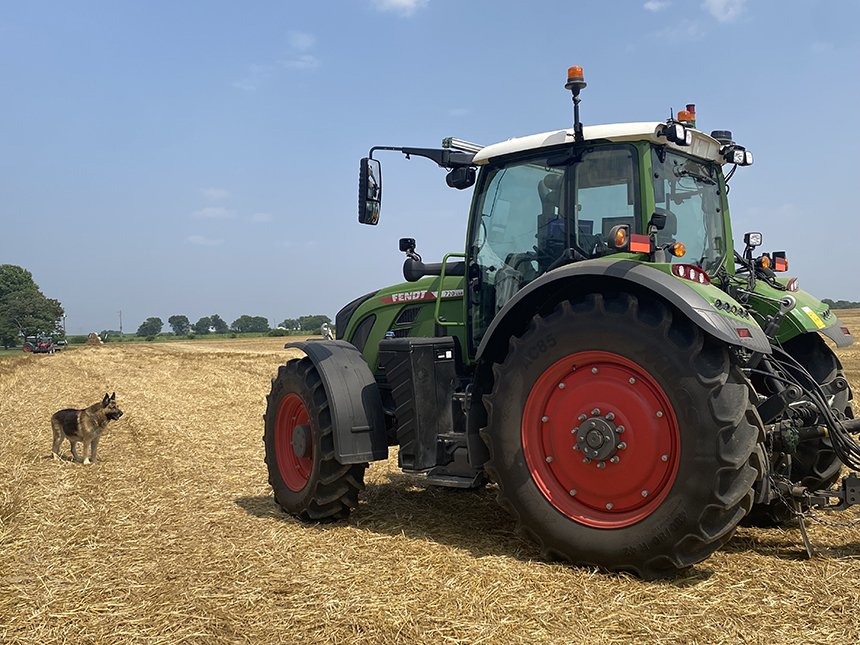AGCO Gives a Peek Under the Hood: 4 Prototypes Are Previewed
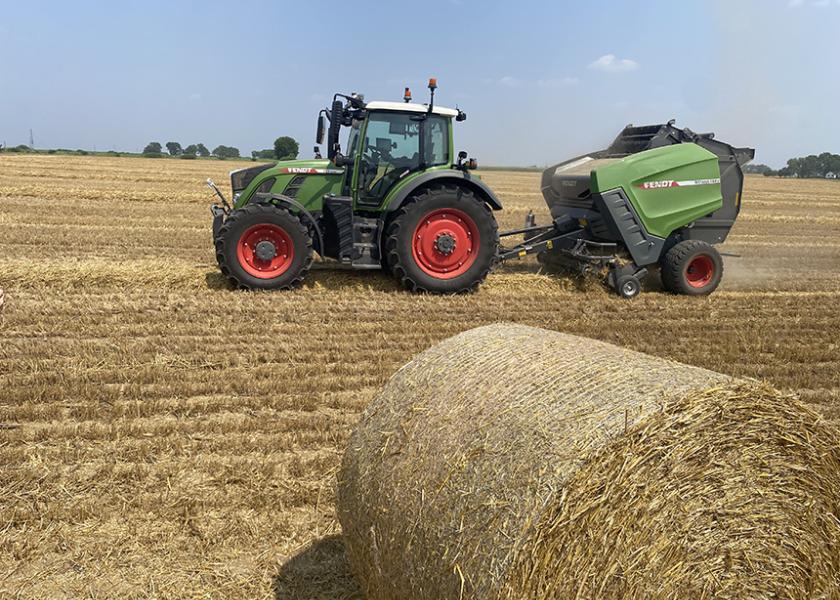
At a recent field day hosted in Kentucky, AGCO showcased its latest machinery and technology, including several prototypes.
Many of the machines still be developed highlight AGCO’s stated goal of providing autonomous solutions for every season in crop production by 2030.
Selective Spraying With Symphony Vision
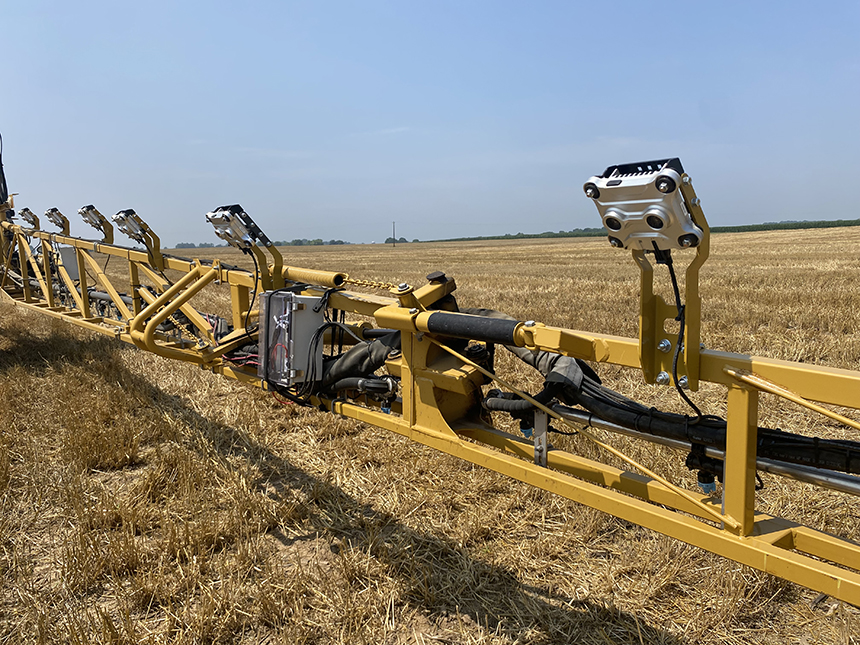
In the next one to two years, AGCO will be introducing Symphony Vision via its Precision Planting aftermarket channels. The goal of the equipment is to intelligently apply (spot spray) the right rate of herbicide and only where needed by using machinery learning and artificial intelligence.
The company says early beta tests of the targeting spraying system have shown a 77% reduction in post application of herbicides.
As an example, a herbicide program with Symphony Vision pre-plant applies to 25% of the field, first post application applies to 35% of the field; and second post application applies to 15% of the field. Whereas a traditional herbicide program would cost $51/acre; Symphony Vision could reduce input costs to $20.25/acre–saving more than $30/acre.
Precision Planting aims to have vision-based systems for all self-propelled sprayer platforms as well as a pull-type sprayers.
Engineers say the system is a green-on-green solution that is being built to identify crop vs. weed vs. residue as well as weed height. Priority crops are corn, soybeans and cotton with other row crops in development.
[This system will likely be commercialized around the same time as One Smart Spray, which has commercialization support from AGCO as well ]
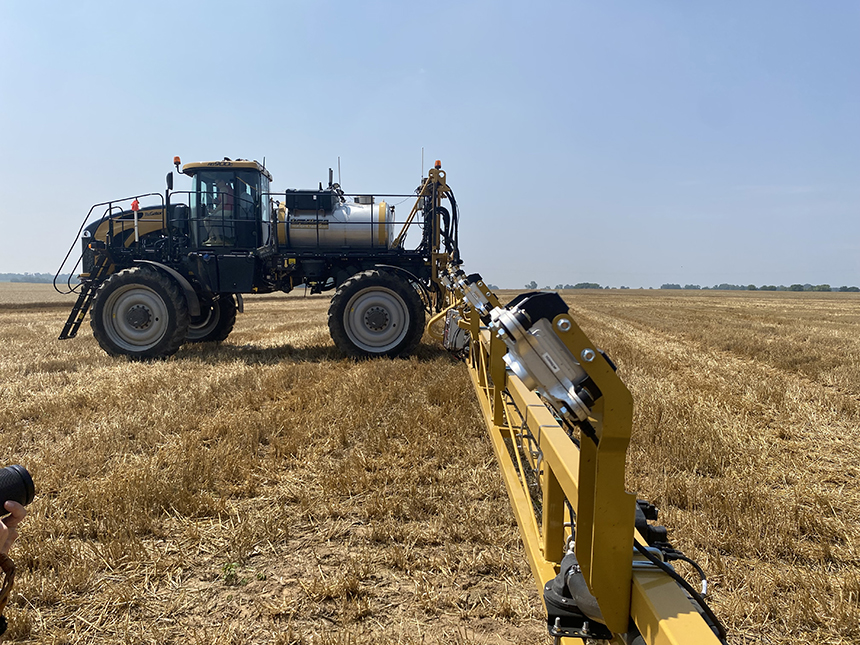
Autonomous Grain Cart
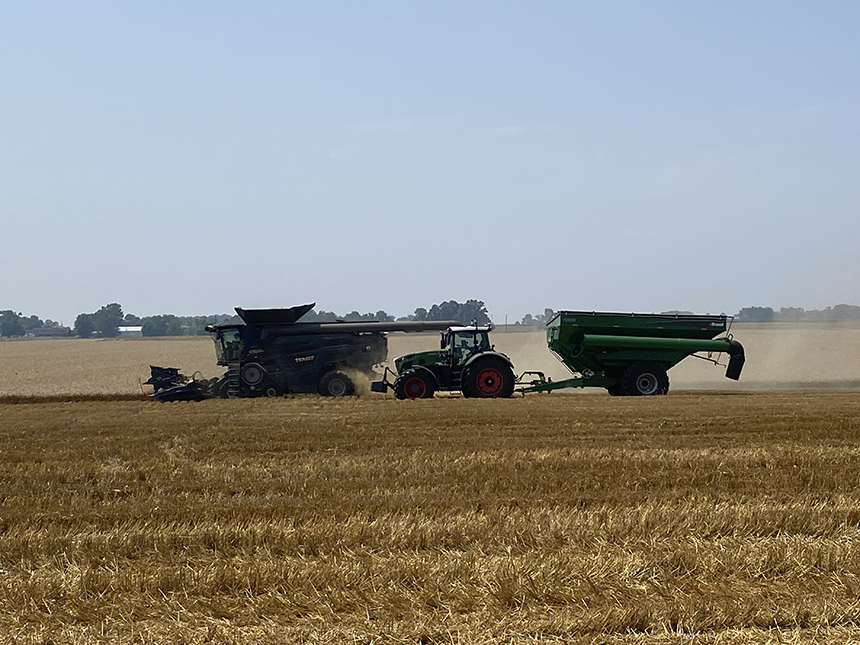
Planned for limited introduction in 2025, AGCO is developed an autonomous grain cart system along with the team at JCA, which was acquired by the company in May 2021.
Intentionally designed as a retrofit system, AGCO’s autonomous grain cart is already showing a 33% increase in harvest efficiency by avoiding delays in logistics and keeps the combine harvesting to avoid yield loss. Additionally, the technology can ease labor shortages and help remove the bottlenecks in grain harvest.
To enable the autonomous grain cart system it requires the following technologies: perception, machine controls, guidance and navigation, mission management, safety systems, human-machine interface, communication and data management.
The system has three stages during its workflow: cart staging, cart alignment, send to truck. In the field it runs alongside the combine, and in the combine, the operator has a camera view of the grain unloading, which is automatically adjusted to uniformly fill the cart. The tractor/cart path is automatically mapped by the system, and only includes areas of the field that have been harvested.
AGCO and JCA team members say they’re testing multiple tractor platforms for the system, and at its launch will have compatibility across multiple tractor brands. The team also shares their goal for providing autonomous solutions specific to the task, including the prototype grain cart, future developments for fall tillage, and others.
Electric Fendt Tractors
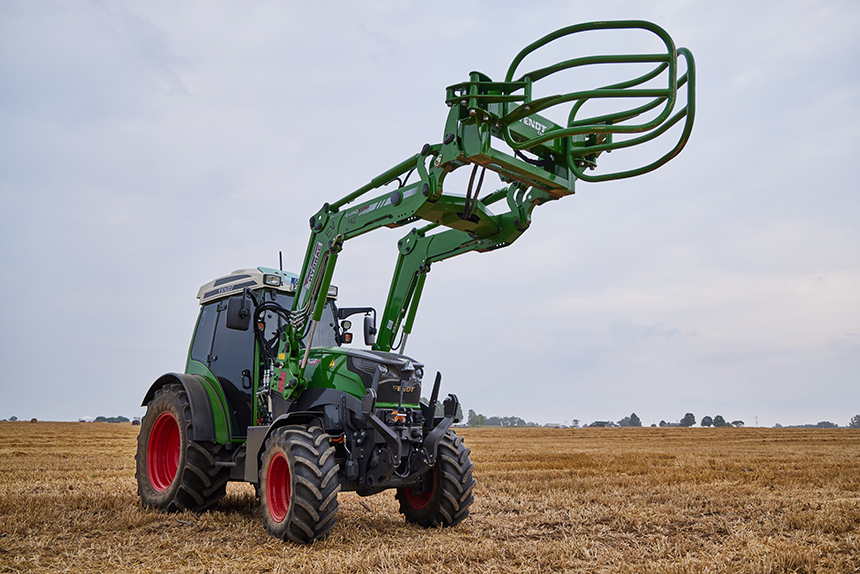
With a demonstration of a prototype Fendt e100, AGCO is showing it’s progression toward selling battery-powered electric tractors up to 150 hp by 2030.
Battery electric powered tractors are part of AGCO’s three-prong approach to alternative fuels which also includes renewable fuels and fuel cell solutions.
The Fendt team is focusing on battery powered tractors for working times up to 6 hours before recharging.
The Fendt e100 has a 50 kw e-motor and geared with CVT, and it’s also outfitted with standard PTO and 3-point hitch interfaces.
It’s charging ports are standard for electric vehicles and can be restored to 80% battery life in as little as 40 minutes.
The company says this power range of a battery powered tractor will be launched in Europe in 2024 and in North America in 2025.
Autonomous Baler

The Germany-based Fendt engineering team is prototyping a fully autonomous tractor and round baler setup.
Fendt engineers says they are still testing the blocking blocks of the setup, the first which will be commercially available in 2025 is swath detection and auto-guidance—where the baler pickup position is automatically adjusted for a full intake based on the swatch location. A LIDAR sensor on the tractor cab is used for swath detection as well as obstacle detection.
The remaining components include route planning, wayline sharing, collision avoidance, and task automation. Then all have to be integrated into the tractor platform to form a fully autonomous system.
During the field demonstration Farm Journal attended, the farm dog walked in front of the tractor during the baling process while in fully autonomous mode and no one was in the cab—and the system stopped.
The prototype is running at 3 mph, which the engineers say brings an added benefit of not stressing the baling components as much as running at top speed. If the baling process is interrupted due to an issue in the bale chamber, sensors detect increased pressure and stop automatically.
During autonomous operation, a supervisor can view the full operational details on a tablet.
The application of autonomy in the baling process isn’t about labor cost savings, the team Fendt highlights, but rather providing the security of having the task completed regardless of tight labor availability.
Whereas the JCA-based technology used in the autonomous grain cart is being developed as an aftermarket system, this Fendt system has the goal of being factory-installed.
